Religious Education
Marylene Douglas
All students attending St Louis de Montfort's Aspendale have the right to feel safe. The care, safety and wellbeing of children and young people is a fundamental responsibility of all within our school.

Religious Education
Marylene Douglas
All students attending St Louis de Montfort's Aspendale have the right to feel safe. The care, safety and wellbeing of children and young people is a fundamental responsibility of all within our school.
It was lovely to see our Year 2 students come to Mass on Tuesday and celebrate with the parishioners. Year 2's have been learning all about the Mass and the significnce of the 4 parts of the Mass.
Mass is the central act of worship in our church. Going to Mass is about spending time with God, but also receiving his graces (inner strength to live the Christian life). The name 'Mass' comes from the final blessing said by the priest in Latin ‘Ite missa es’ meaning “to send out” as Jesus Christ sent his disciples out to the world to take his teaching to them, we are also asked to "Go forth to love and serve the Lord".
This is a message we are constantly stiving to live by, as it is by loving and serving others that we can 'love and serve' our Lord Jesus.


On Thursday, two of our Year 6 classes celebrated their Confirmation Journey Mass. At this Mass, Father Ignatius blessed the candidates and bestowed upon them the blessings of the Holy Spirit, that through Confirmation they may use their spiritual gifts of Wisom, Understanding, Counsel (Right Judgement), Fortitude (Strength), Knowlegde, Piety (Faith) and Fear of the Lord (Wonder and Awe of God) to bring the love of God to into their hearts and to those they encounter. Unlike material gifts, these gifts are meant to last a lifetime; they never go out of style, they never tarnish, break, or need to be replaced. It’s up to us to put them to good use, and not just box them up and put them on the proverbial shelf.
Below I have included a brief description of the meaning of the Gifts of the Holy Spirit from the "Daily Bread" website, as they can sometimes be misinterpreted.
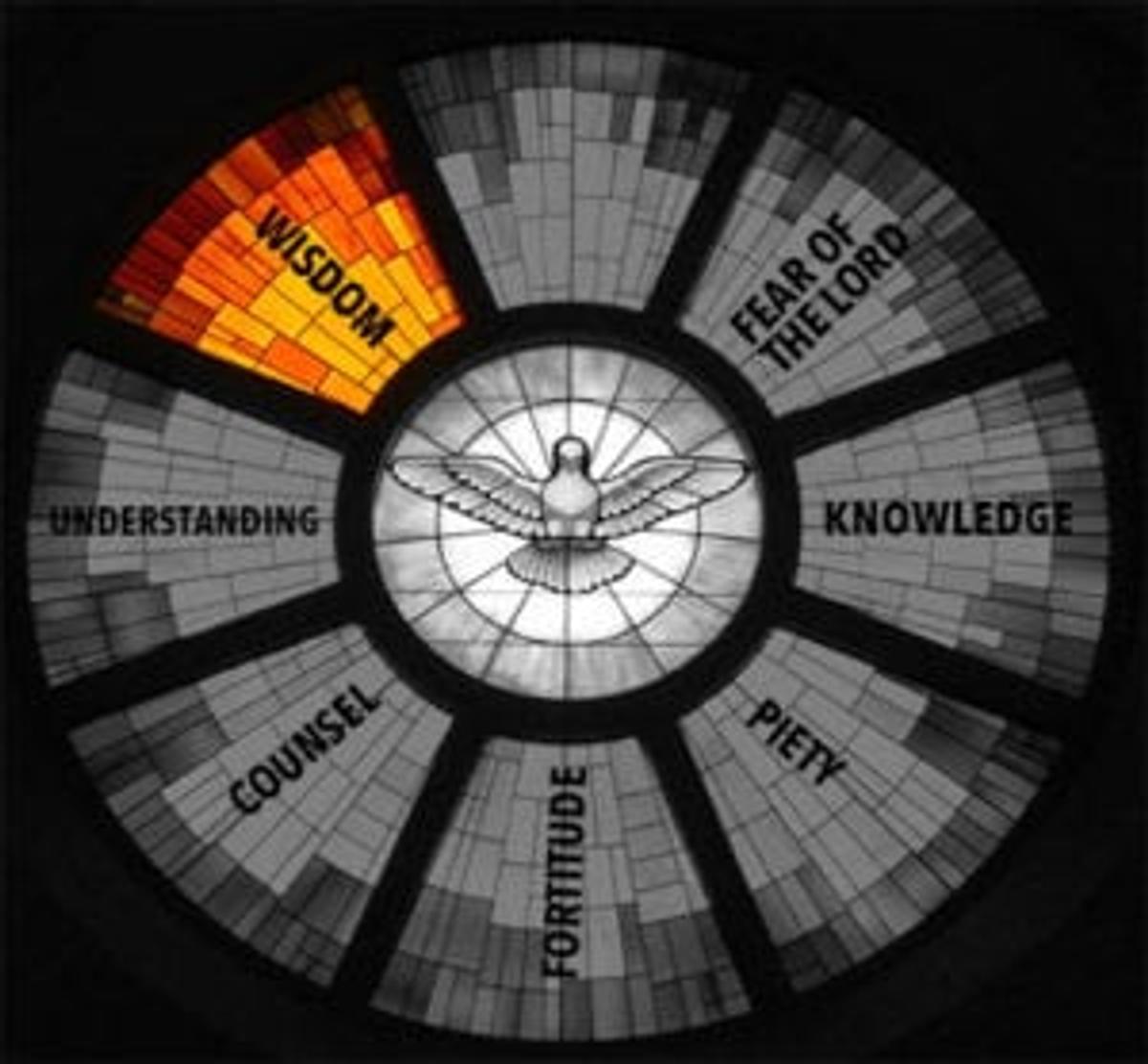

When we receive the gift of wisdom, we are given the ability to view the world through God’s perspective. Imagine that! With this gift we are able to see and evaluate all things — joy and sorrow, success and failure — through the eyes of God. Imagine walking through life with God’s wisdom helping us to make all of our decisions — big and small — and to see others as God sees them.
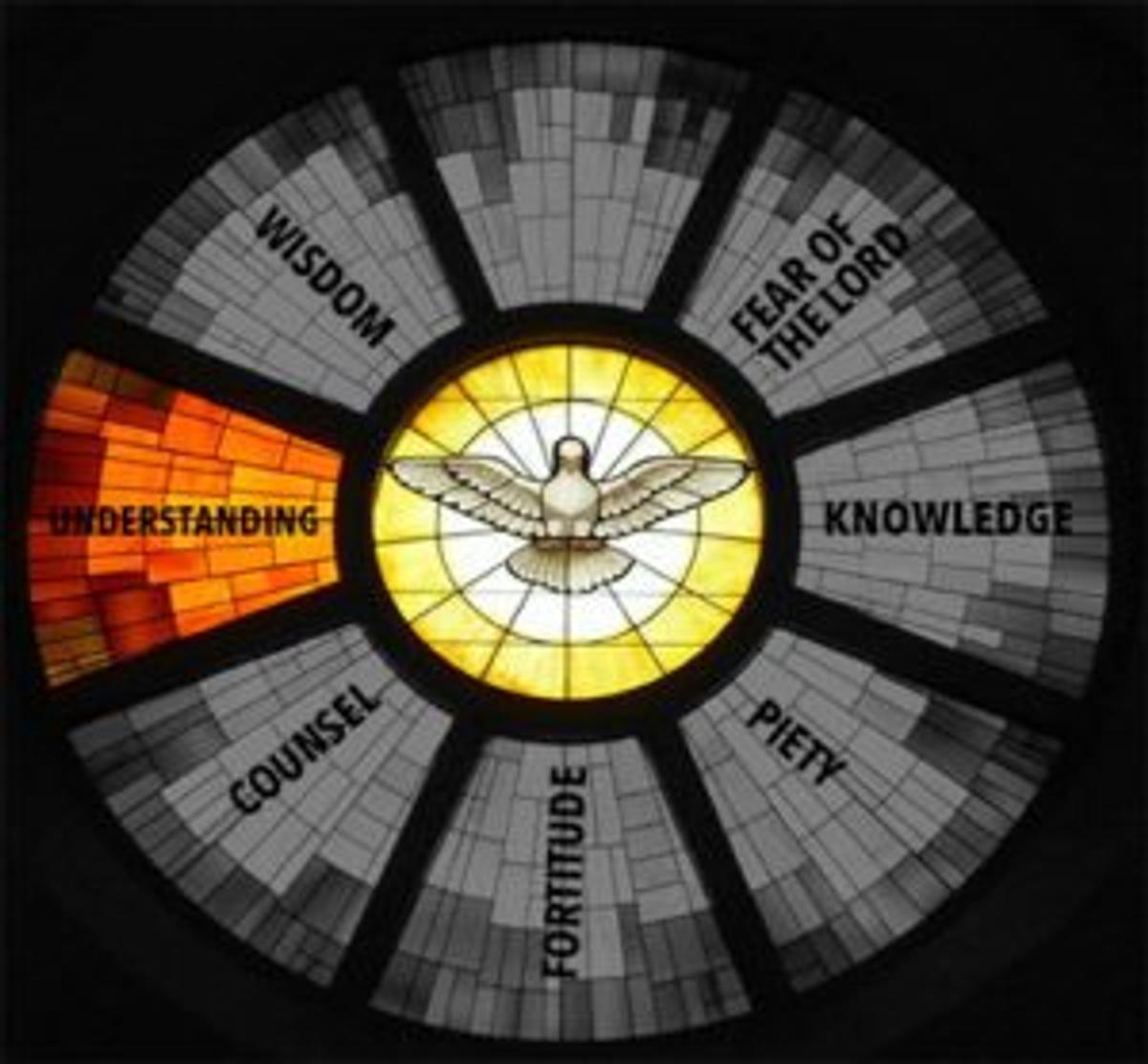

St. Thomas said, "In this very life, when the eye of the spirit is purified by the gift of understanding, one can in a certain way see God." The gift of understanding grants us the ability to comprehend the Scriptures, the messages they hold, and the meaning of Christ’s teachings. In a way, this gift goes hand-in-hand with the gift of faith: the more we understand the teachings of the church, the more our faith is strengthened.
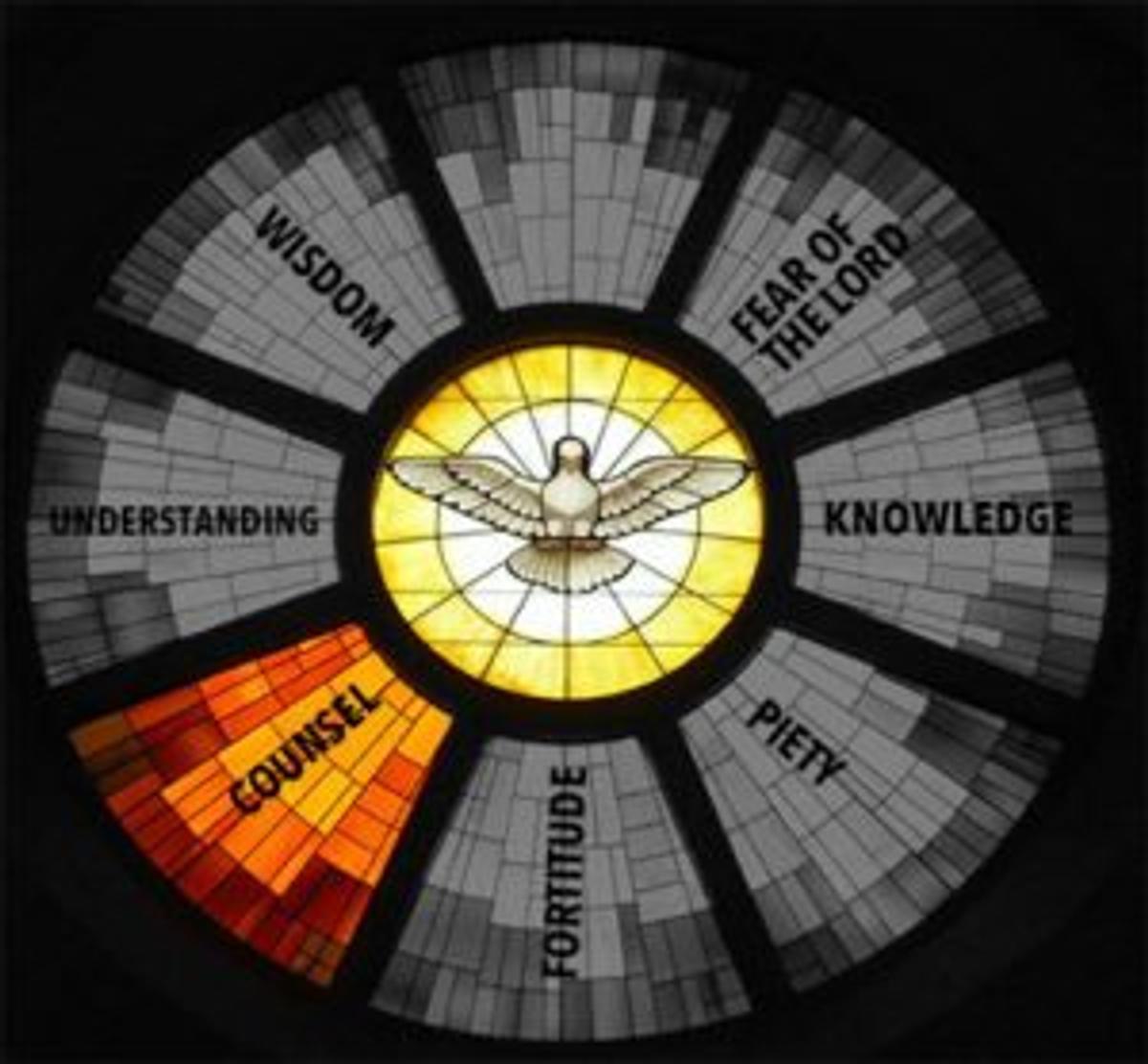

The gift of counsel, also known as judgment, gives us the ability to judge what is good and evil and to act accordingly. It helps us to assess a situation promptly and correctly so that we are always living our life according to God’s will. Not only does counsel provide solutions to difficult and unexpected situations in our own lives, but it also helps us to give counsel to others.
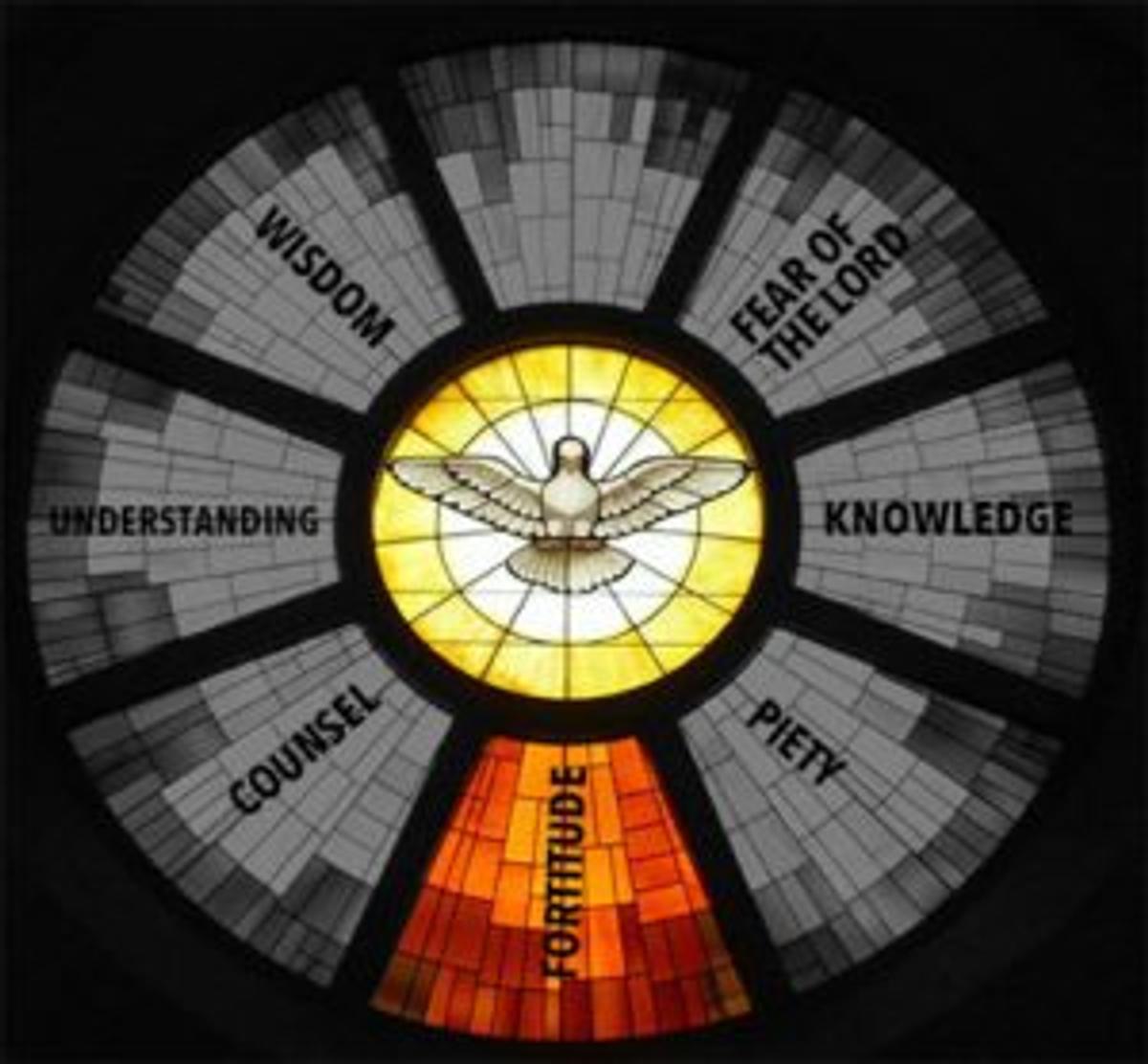

In our daily battle against temptation, sin, and anguish, we need the gift of fortitude to see us through. Fortitude is the mental and emotional strength given to us by the Holy Spirit to face adversity, danger, or temptation. Fortitude helps us to persevere throughout our time in this world so that we may reach our goal of being united with Christ in the afterlife. The lives of martyred saints are examples of fortitude in practice. Even in the face of persecution, fortitude helped them defend their faith.
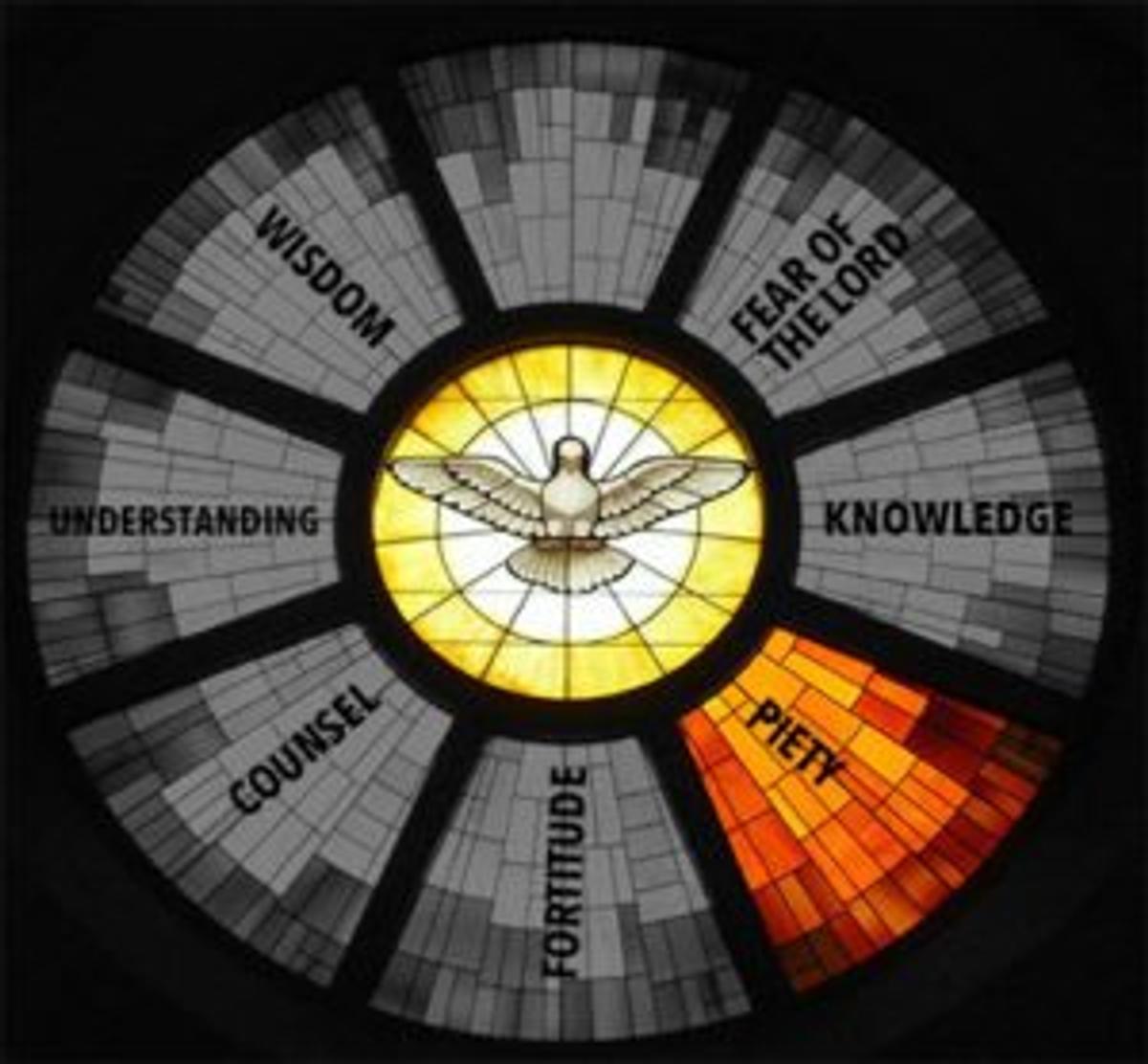

Pope Francis explained the importance of this gift when he addressed his general audience in June 2014, saying, “Piety is not mere outward religiosity; it is that genuine religious spirit which makes us turn to the Father as his children and to grow in our love for others, seeing them as our brothers and sisters, members of God’s family.” He goes on to say, “The love poured into our hearts by the Holy Spirit leads us to perceive the Lord’s presence and love in our lives, and moves us to respond joyfully in prayer and adoration.”
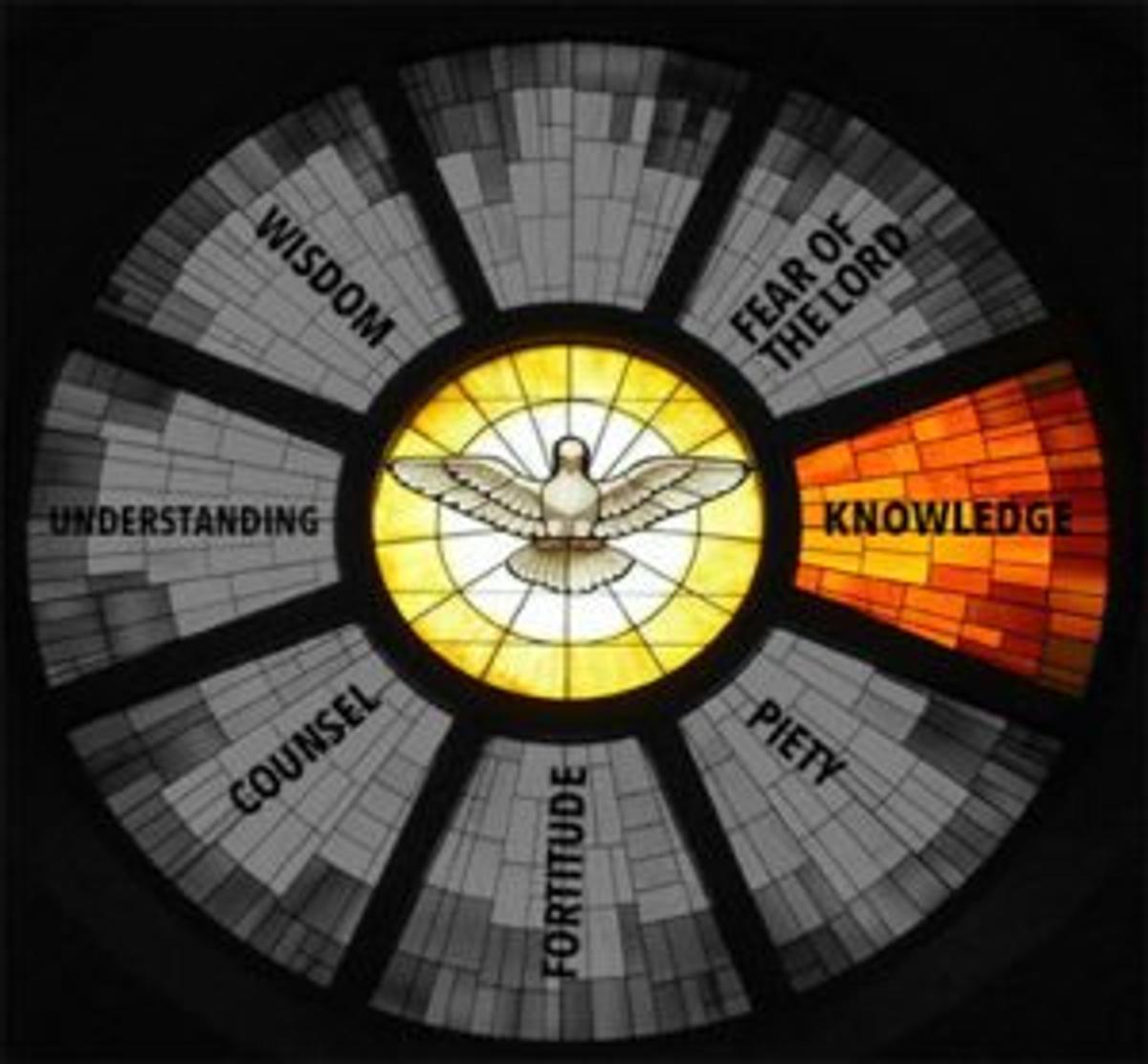

When we speak about the gift of knowledge, we aren’t talking about scientific or historical facts such as when World War I started and ended. Rather, we are speaking about spiritual knowledge. This gift helps us determine if we have all of our spiritual facts in order such as: are material objects and idols keeping us from putting God first? Are our sinful ways creating a road block between us and God? What is the state of our soul? Where do we need to make changes?
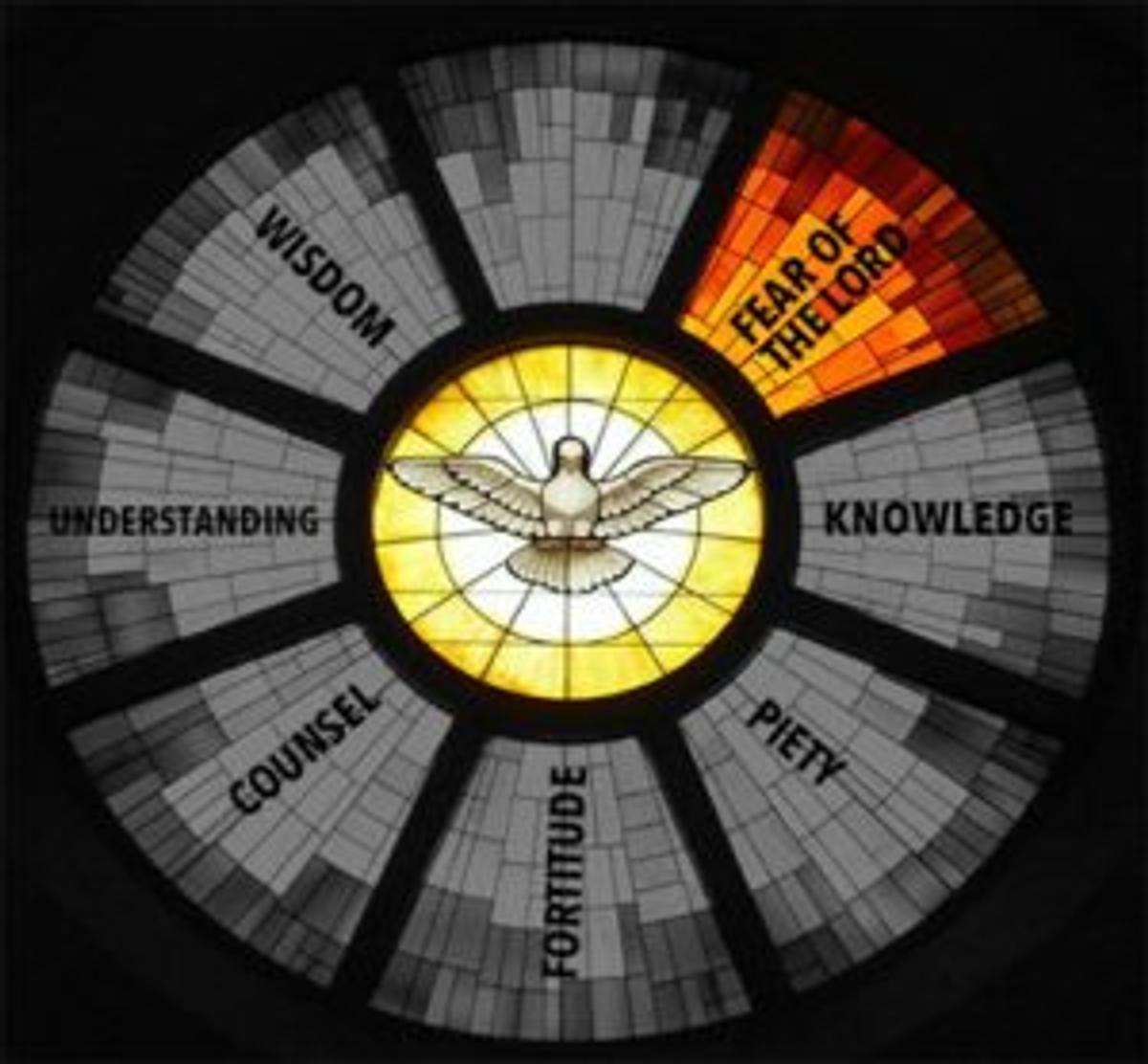

This gift is one of the most confusing and often misunderstood. The word “fear” is what throws many people off. Are we supposed to be afraid of the Lord? Not at all! Our relationship with the Lord is based on love, not fear. What this gift means is that we should fear the horror of sin and how sin separates us from the Lord. We should fear living, speaking, or acting in any way that offends the Lord. St. Thomas Aquinas explained it best when he said “this gift is a "filial fear," like a child's fear of offending his father, rather than a "servile fear," that is, a fear of punishment. We should live in wonder and awe of God’s perfection and fear ever hurting Him.